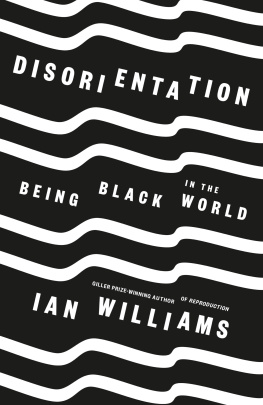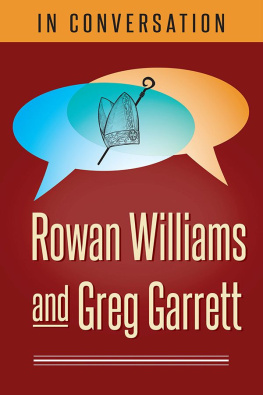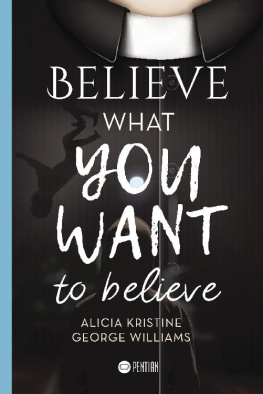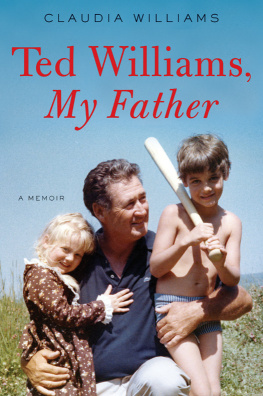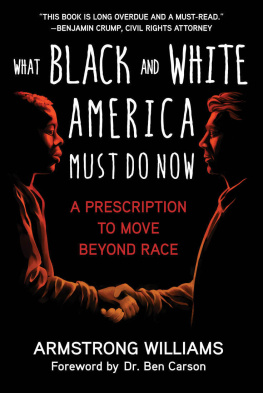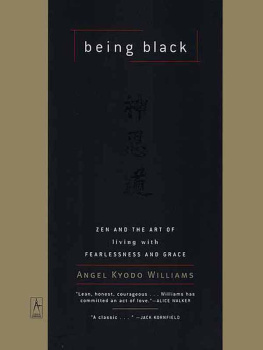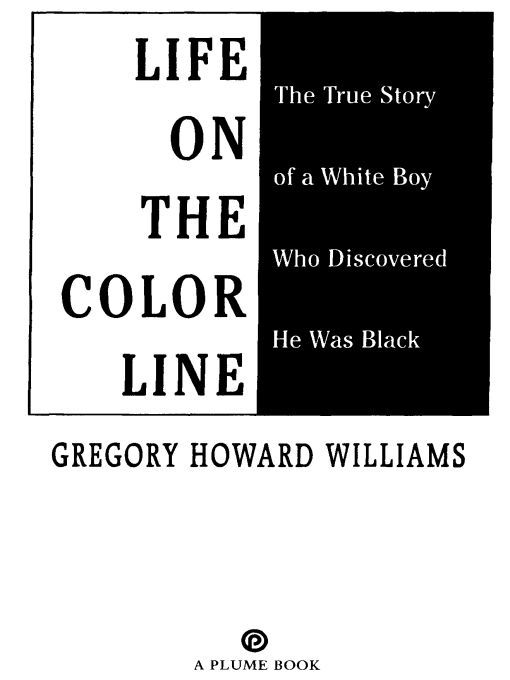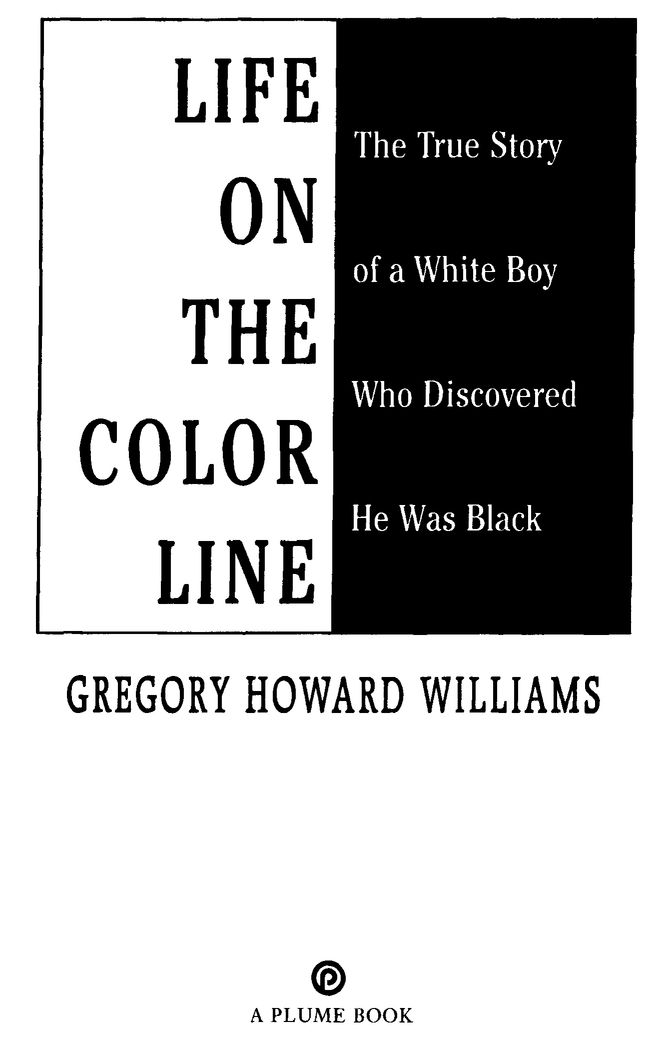Table of Contents
A stunning journey to the heart of the racial dilemma in this country ... a story that stays with us, wraps itself around us and wont go away. Everyone will be enriched by reading this unforgettable tale..
Shirley Taylor Haizlip, author of The Sweeter the Juice: A Family Memoir in Black and White, in San Francisco Chronicle
Captivating ... not since the classic Black Like Me have the issues of race and identity been explored from a place so close to the heart.... Tells more about this society and race than any interloper across the color line could reveal.Buffalo News
A fine job ... Williams is a man who was thrust involuntarily from white into black America and had every reason to believe he would stay there forever. As it happens, he did succeed in white terms in the white world.Washington Post Book World
... should become required reading in high schools, for Williams experiences are emblematic of the enduring conflict between black and white that has been going on in the soul of this country since before the Revolution.
Fort Lauderdale Sun-Sentinel
Moving and courageous ... he exposes the terrors of his early years, thus giving readers a greater understanding of humankind.Library Journal
GREGORY HOWARD WILLIAMS is a graduate of Ball State University and George Washington University. He is Dean of the Ohio State University College of Law and lives in Columbus, Ohio, with his wife and children.
A singularly moving account ... skillfully and humanely told.... Williams has an eye and an ear for the mechanics of telling tales: the apt detail, the adept omissions.
Savannah News Press
Beautifully written, this vivid memoir tells a story that is at once grim and inspiring.Anniston Star
A powerful tale of a young mans struggle on the cusp of the nations racial conflicts and confusions.Booklist
A painful depiction of how it feels to have everything, even your race taken away at a moments notice.
Los Angeles Times Book Review
Moving and complex ... explores the importance of identity and image in a color-conscious society.... It is tragic that poignant accounts such as Williams still need to be told. Williams has done an excellent job of telling his story.
Cleveland Call & Post
Tightens its hold on [the] heart even after [the reader] has closed the book for the last time ... demonstrates that although questions of ethnicity may seem obvious in the abstract, they are stubbornly murky in real life.Arkansas Democrat-Gazette
He tells his story by recreating scene and dialogueconvincingly. I could see the faces, smell the places, feel his despair and dream his dreams. Thats the work of a good writer.Cedar Rapids Gazette
Only in the United States could this amazing story have been written. Gregory Williams has given us a poignant account of what it was like for a white boy to be redefined as black.
F. James Davis, author of
Who Is Black? One Nations Definition
An absorbing story ... it moves quickly and the straightforward style conveys an honesty which lends the book its power ... presents a graphic illustration of the effect race has in a racist society on ones outlook.Capital Spotlight
Unlike the authors who put on masks to become temporary witnesses of a black experience, [Williams] is a genuine voice to be added to the array of literary depictions of the American mosaic.New York Law Journal
It serves as a reminder of how painful it is to be in a marginal status in our society, and while we weep for those who endure it, we must renew our vows to eradicate it.
Albert J. Reiss, Jr., William Graham Sumner Professor
of Sociology (Emeritus), Yale University
My old mans a white old man And my old mothers black.
If ever I cursed my white old man I take my curses back.
If ever I cursed my black old mother And wished she were in hell,
Im sorry for that And now I wish her well.
My old man died in a big fine house My ma died in a shack.
I wonder where Im gonna die, Being neither white nor black!
Langston Hughes, Cross
To the memories of my father, James A. Buster Williams,
and my truly mother, Dora Weekly Smith.
They gave me the strength to live this story.
And to
Sara Whitney Williams,
who gave me the courage to tell it.
Acknowledgments
This book was ten years in the making and fifty years in the living. Unfortunately, many people from my past are no longer alive, and I had to rely on my memory and those of a few others who shared the struggle with me. I have tried to be accurate and honest and portray events as best I could recall them. Fortunately, or unfortunately, those learned in the area tell us that often our most vivid and accurate memories are those of our adolescence. I have changed some names to protect the privacy of persons mentioned in the book.
I am deeply indebted to my family, friends, and colleagues who read so many drafts of the manuscript over the years. Their questions and suggestions helped me immeasurably. However, there are too many of them in Iowa City, Iowa, Columbus, Ohio, and elsewhere to mention them all. Nonetheless, at risk of overlooking others who were extremely helpful, I must express special thanks to a few. Sara Whitney Williams envisioned this book long before it was a reality. Her encouragement, memories, and creative energy were invaluable along the way and greatly enriched the end result. My agents, Jonathon and Wendy Lazear, believed in this project. Jonathon supported and counseled me longer than anyone could reasonably expect. My editor at Dutton, Deborah Brody, was never without a word of encouragement and help. My longtime pal and Iowa City companion James Alan McPherson was always willing to help me reflect on a past that mirrored his in many ways. Cameron Stracher, Steve Rhodes, and Christina Baldwin made some excellent suggestions and gave me good advice on writing. Nancy Whetstine, Harriet Dana, Annette Ebright, and many other typists over the years maintained their good cheer as I handed them one draft after another. To Natalia, Zach, Carlos, and Anthony, thanks for all the sacrifices you made to help Dad finish The Book.
Chapter 1
The Open House Cafe
The white frame building dwarfed all the other beer joints on U.S. 1 between Alexandria and Fort Belvoir, Virginia. Dad said we had the best location in the country, right smack-dab in the middle of the Eastern Seaboard, and less than five miles from the number one tourist attraction in America. But it was the summer of 1950 and Americans were more interested in events occurring thousands of miles away than in Mount Vernon, George Washingtons ancestral home.
A collective fear gnawed at the country. The North Koreans had just launched a full-scale invasion of South Korea and my family was in the middle of it all. Every afternoon green army jeeps roared into our gravel parking lot and disgorged Fort Belvoir soldiers. In fatigues and webbed gun belts, they swaggered to the broad mahogany bar of the Open House Cafe. Tales of death and destruction wreaked by the Communists as they swarmed down the Korean peninsula sent shivers down my spine as I sat at the cash register. It was hard to concentrate on my job as the tavern buzzed with stories of America in retreat, just one step away from being pushed into the sea at our final outpost. I thought the world was coming to an end.


